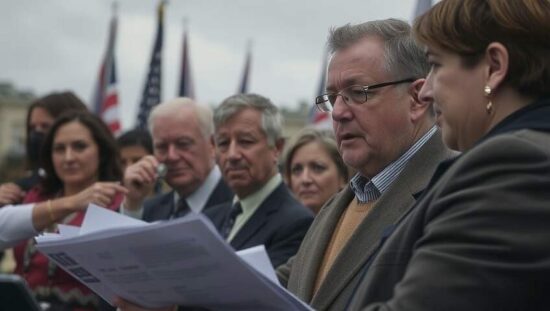Brandenburg’s State Premier Dietmar Woidke’s recent suggestion that the Alternative for Germany (AfD) could render the established political “firewall” against the far-right obsolete has ignited internal dissent within the Social Democratic Party (SPD) and drawn sharp criticism regarding the viability of any substantive shift in how the AfD is approached.
Woidke’s statement, made during a press conference in Potsdam, posited that the AfD could effectively negate the necessity of the established distancing measures by purging its ranks of extremist elements, including neo-Nazis and former members of the National Democratic Party (NPD). The remark has been widely interpreted, particularly within the SPD, as a surprisingly lenient perspective on a party consistently flagged for its ties to far-right ideologies.
The reaction from within the SPD has been largely skeptical. Sebastian Roloff, head of the SPD in Bavaria, welcomed Woidke’s emphasis on the impossibility of collaboration with right-wing extremists, but cautioned that the notion of the AfD undergoing such a comprehensive cleansing appeared “unrealistic”. He questioned the feasibility of the party shedding a significant portion of its leadership and membership to achieve a more mainstream image.
Ralf Stegner, a prominent SPD Bundestag member, delivered a particularly biting commentary, suggesting that the premise of Woidke’s statement was flawed. “If the AfD were to exclude all extremists, nothing would remain of the party” Stegner told “Der Spiegel”. He argued that by tolerating extremist leadership, the AfD itself becomes implicated in extremist ideologies. Stegner characterized Woidke’s conditional phrasing as reflecting an improbable scenario.
Even within Woidke’s own state of Brandenburg, reservations have been expressed. Maja Wallstein, a Brandenburg SPD Bundestag representative, acknowledged a potential lack of common ground with the AfD, but stressed her reluctance to collaborate with parties that threaten democratic institutions. She highlighted the party’s recent selection of “extremists” into key positions, effectively ruling out any meaningful dialogue. Wallstein suggested that Woidke, implicitly, shared this viewpoint.
The controversy highlights a continuing debate within the SPD about the appropriate strategy for dealing with the AfD, with some advocating for stricter distancing and others, like Woidke, seemingly exploring the possibility of a more nuanced, albeit highly improbable, path toward potential, albeit unlikely, engagement.





